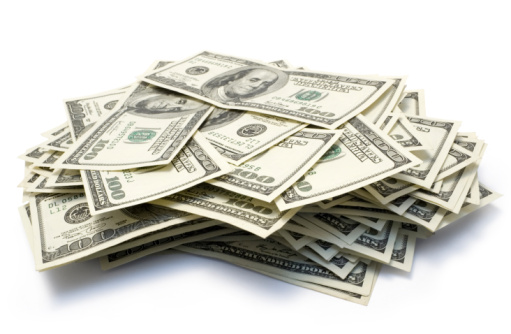Assets: Items Owned by the Company or to Which the Company Has Rights
An asset is an economic resource owned by the business; it is expected to be used to benefit the operations of the business and generate revenue.
Examples include
-
cash,*
-
accounts receivable,**
-
supplies,
-
merchandise inventory (introduced in Lesson 5),
-
automobiles,
-
equipment,
-
buildings, and
-
land.
*Cash includes money in bank accounts, bills, coins, checks, and so on.
**Accounts receivable refers to a customer’s promise to pay in the future for services performed or goods sold.
An asset also includes anything that will add future value to your business.
Example 1.4
MM TAX purchases paper needed to complete tax returns for its clients. This paper is an asset because it generates income. MM TAX also uses a computer to calculate the tax returns that are created for the tax clients, so the computer is an asset. Equipment used in the generation of revenue is an asset.
What about buildings?
If the building is used to generate revenue, then it is an asset. Stores, factories, and doctors' offices are examples.
What about land?
Obviously, if the land is occupied by a building used to generate revenue, then it, too, is an asset. But what if it is just land? We must determine the purpose for the land. Is the land being used to produce crops, as on a farm, or minerals, such as oil, gas, coal, gold, or silver? If it is, the land is generating revenue and is an asset. If the land is being held for future use, such as the expansion of a facility or development of a residential community, then the land is an asset because it will add value to the company.
Therefore, an asset also includes anything that will add future value to your business.
Example 1.5
MM TAX owns a building that is used for meetings with clients and for preparing tax returns. The building is an asset because it is used in the generation of revenues.
MM TAX purchased a piece of land in an area that is soon to be developed as a business park. The company hopes to be able to build a new tax office when the infrastructure for the land (roads, utility lines, etc.) is completed. The land is an asset because it will add value and be used in the future to generate revenues.
MM TAX purchased a piece of land located in an area that is being considered for development by a famous entertainment conglomerate as a future theme park. MM TAX will not locate there, having purchased the property for investment purposes. Is this land an asset? Yes! MM TAX is hoping to sell the land and make a profit (generate revenue); it is an asset that will add value to the company.
What about the part about having rights to something?
This involves items that the company may not have received yet but has the right to receive.
Example 1.6
MM TAX has completed a tax return for Mrs. Jones and has delivered the return along with the bill. Mrs. Jones has not yet paid MM TAX for this service. Therefore, MM TAX has a receivable due from Mrs. Jones. In other words, MM TAX has the right to collect the money that is owed for that tax return. The receivable is an asset for MM TAX, because the company has rights to that money and that money will eventually be placed in the cash account when it is received.
Another item that is considered an asset is a prepaid expense. Many times, a company must prepay for items, such as rent or insurance. Because the company has the right to obtain a service that has been prepaid, the service is an asset.
Example 1.7
MM TAX must pay one year of malpractice insurance at a cost of $1,200 for the year. Because MM TAX is entitled to receive insurance coverage during the next 12 months, MM TAX has rights to that insurance, or it has rights to obtain a refund of the insurance premium for insurance that is not delivered. The prepaid insurance is an asset.

